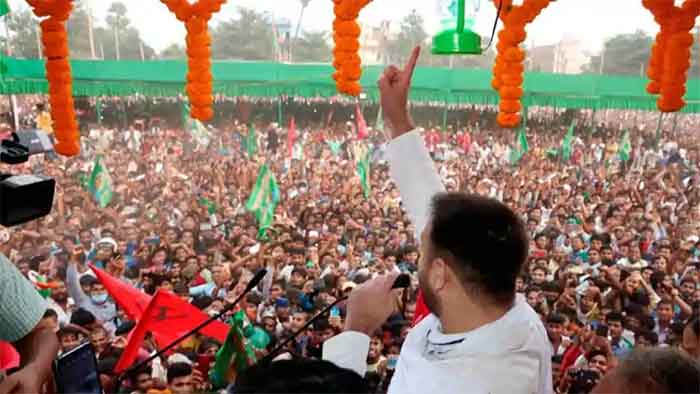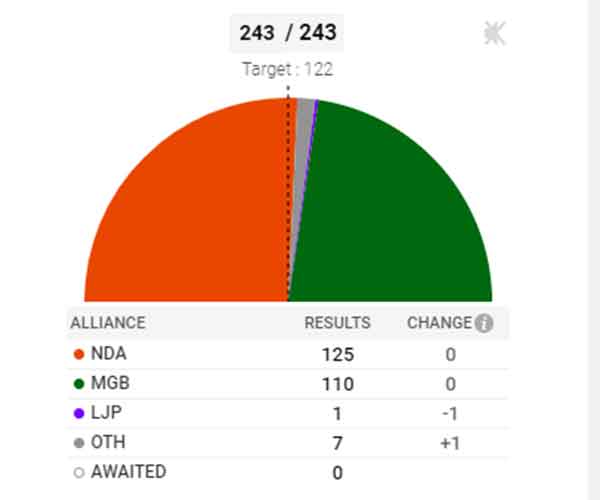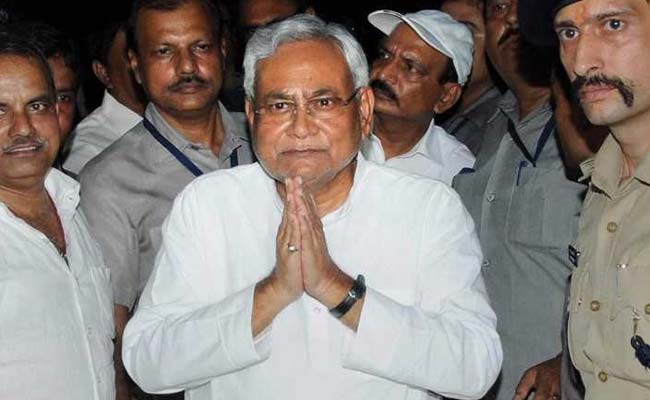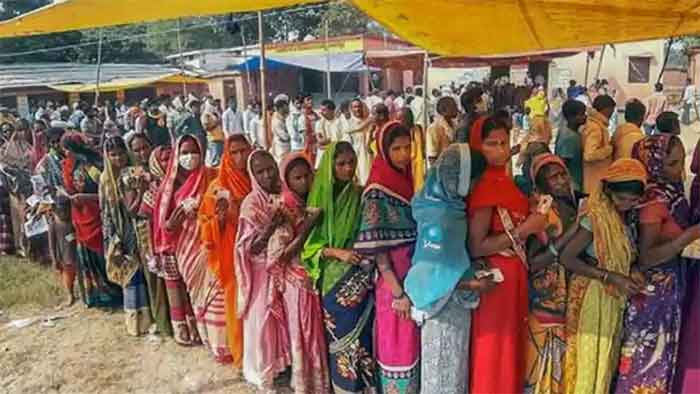Co-Written by Mohd Shahwaiz & Shayenaz

Introduction
The coronavirus pandemic has unequivocally made impacts on each country and every people, in one way or another, have experienced effects in terms of ruining of social values, economic losses, psychological disorder, and as well as political consequences related to the state’s management of the pandemic situation and continuation of democratic practice. The COVID-19 has been infected over 44 million and has become subject to over 1 million fatalities. After the declaration of the coronavirus pandemic and suggested measures by the World Health Organization (WHO), the implementation of national lockdown has brought drastic changes ranging from day-to-day life to the social, economic, and political processes.
The process of democracy has also been affected by the lockdown as far as several activities related to the maintenance of democracy are subject to the gathering of people – particularly the electoral process. Conducting regular elections – which is one of the most crucial practices for maintaining democracy – has become the most challenging task for the countries because of the risk of spreading infections. Being the world’s largest democracy, India has also decided to organize elections in its provincial states. The latest one of them is going to hold in Bihar in October-November. However, many countries have organized elections during the pandemic. For example, South Korea has conducted elections with proper rules of following precautions, including ‘social distancing,’ gloves, etc. Sri Lanka is one of the latest ones. The United States of America is also going to conduct its presidential election in November. But the situation of these countries is very much different from India in many ways.
Notably, India has recorded the second-highest infected cases after the United States of America. Indeed, holding an election in such a highly infected environment and a highly densely populated region is a great challenge for India. However, maintaining a free and fair election is a greater challenge than merely an arrangement of voting for the people during a coronavirus pandemic. The Election Commission of India has adopted various legal measures and promised to facilitate voters by gloves and sanitizers to ensure the voters’ security at the polling booths. Yet even with all those new rules and better arrangements made by the Election Commission of India, the elections during the coronavirus pandemic environment will not be free and fair due to several social, psychological, and economic factors. To maintain only the legal measure may not be enough to properly ensure ‘freeness’ and ‘fairness,’ which needs to adhere to the justifiable representation of ‘will of the people’ in the democracy.
What is ‘Free’ and ‘Fair’ Election?
It is not easy to define the election. The election is a procedure of making ‘choice’ by people in the shape of a single non-transferable vote. In this election process, people (according to Adult Suffrage) choose a person or number of persons who hold public offices and become a part of governance. The election process takes place into the specific rules and regulations enforced by the constitutional body, such as the Election Commission of India. The election is an indispensable aspect of democracy. Since democracy offers the ‘government of the people’ or governance by consent, which emphasizes the utmost importance and role of the common masses into the ‘allocation of authoritative values.’ In keeping mind the essence of election and its reliability for lightening up the values of democracy, free and fair characteristics into the election process should be maintained in which government truly represents the ‘will of the people.’
Almost all democratic countries try to set a specific rule and regulation that ensures ‘free’ and ‘fair’ election. The Indian constitution makes provisions for the ‘free and fair’ election under article 324. In order to make special concern for vulnerable people, the Election Commission of India, “fair and free” refers to “[a]n atmosphere in which each and every elector is able to access the polling station without being obstructed or being unduly influenced by anybody is an important prerequisite to a free and fair election.”
Generally, based on the variables marked by the inter-parliamentary council (IPC) the credibility of the free and fair election has been judged or interpreted[1]. The provisions made by the election commission of India seem to follow the general principles for concluding justifiable elections in India. These guidelines mostly focus on legal measures to ensure a free and fair election. However, the legal endorsements are not enough to maintain the freeness and fairness of the election in times of pandemic.
Why not free and fair?
As social distancing is one of the principles measures to avoid the risk of spreading coronavirus, the usual campaigning – such as door to door, organizing large scale physical campaigning, roadshows – has been replaced by ‘Virtual’ Poll Campaigning in the Bihar Election. The electoral campaign is one of the integral parts of the electoral process. It enables the incumbent leaders to convince the voters by demonstrating their work according to the people’s best interest and proving the existing government’s efficiency. Simultaneously, the opposition leaders attract the voters by the facts of work or for false claims made by the current government and offer a better governance and welfare opportunity if voters choose them. The pandemic has ruined the normal process of electoral campaigns. To fill inadequacy, ECI encourages the electoral campaign by ‘virtual’ appearances in which both leaders and voters will be using technological means to attract communication with each other. It is an unusual practice for both leaders and voters, and therefore both of them will face very difficulties. Despite this disruption, the condition of affordability and accessibility of the technical assistance is also not good if we look at the National Family Health Survey (NFHS) report in 2015-16. The data of NFHS are showing that 61 percent of women and 36 percent of men in Bihar have no access to mass media. According to data, Bihar has the highest number of women who do not have access to mass media in India.
On changing the nature of the election campaign, S.Y. Quraishi – the former chief of ECI –shows a bit of pessimism because of some facts. He says that “virtual rallies have their own limitations, like inaccessibility to every nook and corner of rural, hilly, and forest areas, with the internet penetration in Bihar being an abysmal 37 percent”. Moreover, as far as the online mode of communication is concerned, CEC says that “the situation is grimmer owing to sparse usage of smartphones in Bihar, which stands at just 27 percent, and patchy mobile network even in the cities. Against this backdrop, with no expenditure ceiling for political parties, the parties go for expensive communication devices like projection screens, among other things, to increase their voter base.”
Such an emerging trend of virtual participation will make another division between the rich and poor voters. In terms of affordability and accessibility of technological means of virtual participation, such as television, internet, smartphones, etc., some people possess the affordability and accessibility for having means to virtual participation while, in this respect, some people will be marginalized and remain excluded from the participation in an essential activity of the electoral process. On the other hand, if political parties or candidates make heavy expenditures such as big screens for telecasting their campaign. Then it will be a violation of the rules and regulations made by the Election Commission of India. In this way, the Bihar assembly election will not be called free and fair.
Bihar election is undergoing when India has been recorded the rise of the most cases in a single day. So, the free election has also been affected by the fear factor of spreading coronavirus. People will not voluntarily expose themselves in such a crowded environment to cast a vote since most of the COVID-19 cases are asymptomatic even after the ECI ensures proper arrangements such as gloves and sanitizers etc. on the day of polling. So, the fear factor of coronavirus infection will force people to not go for voting at the risk of their lives. Moreover, Bihar is the most prone region to flood. At present, a large part of the state has been surrounded by the flood. The flood has ‘displaced’ about 8.3 million people of 16 districts in Bihar. The pandemic and lockdown have made a more vulnerable condition for flood-affected people. The people of flood areas have been experiencing the worst times since flood and pandemic coincided for the first time in history.
On one hand, the day to day struggle of people for their socio-economic needs with their day to day socio-economic needs and inaccessibility of election polling booths due to floods, on the other hand, make almost impossible for their participation in the electoral process in Bihar. All these factors belong to what Nobel laureate Amartya Sen[2] categorizes them into a state of ‘unfreedom,’ which impedes people’s participation in democracy. He emphasizes the socio-economic development for encouraging the active involvement of people in a democracy. These factors curtail people’s engagement that leads to an inappropriate representation of the ‘will of the people’, and, therefore, impacts on the nature of democratic government. By considering all factors responsible for making impediments in people’s participation in the electoral process, the Bihar election will not fulfill the criteria of free and fair election during the pandemic. As Thomas Jefferson said, “we do not have government by the majority. We have government by the majority who participate”. So the government can be formed again in Bihar on the basis of the majority of seats gotten by the party. But to make a successful democratic government, an appropriate representation is required, and for acquiring proper representative and will of the people, the free and fair election is mandatory in democracy.
Conclusion
The periodic regular elections are at the heart of democracy. But coronavirus pandemic has destabilized the ‘normalcy,’ and the COVID-19 vaccine is the utmost demand of the people to restore normal life. Since the preparation of the vaccine needs time and patience of the people, the periodic elections need to change or reviving the government according to the democratic principles. But saving democracy, without risking people’s lives, has posed the most significant challenge before the democratic countries. And only symbolically hold the election without proper procedure leads to the challenge of its free and fair nature. An election is not merely a step or an arrangement of voting for the people. Instead, the election is a process with a cluster of many activities from the announcement of the election to the declaration of the election result. Every part of the electoral process is inter-related to each other. Disruption in any part can bring change into the entire electoral process and ultimately impacts the nature of democracy. However, ECI has made special rules and regulations for the Bihar election because of the pandemic. But the legal framework is not sufficient to the desired outcome of a democratic election. Because social, economic, and psychological factors that emerged due to coronavirus are powerful enough to impact the nature of free and fair elections.
Mohd Shahwaiz & Shayenaz are Research Scholars at the Department of Political Science, Aligarh Muslim University. They can be contacted at [email protected] and [email protected] respectively.
References:
[1] . Goodwin-Gill, G. S. “Free and Fair Election: New Expanded Edition Interparliamentary Union 2006.” Bellegarde–France: Sadag Imprimerie (2006)
[2]. Amartya Sen. “Development as Freedom”. (Oxford University Press, 1999)
SIGN UP FOR COUNTERCURRENTS DAILY NEWSLETTER















































